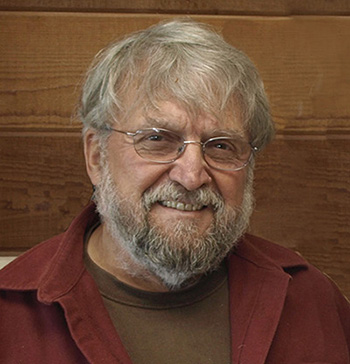Campus News
Influential marine biologist John Pearse dies at 84
A leading authority on marine invertebrates and intertidal ecology, Pearse was a beloved teacher and mentor to generations of marine biologists.

OLYMPUS DIGITAL CAMERA
John Pearse, professor emeritus of ecology and evolutionary biology at UC Santa Cruz, died on Friday, July 31, at his home in Pacific Grove, California. He was 84 and had been in hospice care for several months after undergoing treatment for cancer and suffering a stroke.
A leading authority on marine invertebrates and intertidal ecology, Pearse was a beloved teacher and mentor to generations of marine biologists. He pioneered long-term studies of kelp forests and intertidal ecosystems on California’s Central Coast, was instrumental in establishing the marine science program at UC Santa Cruz, wrote and edited major textbooks and reference books in his field, and led several scientific organizations.
His most enduring legacy, however, is likely to be the many students he inspired, mentored, and helped launch on successful careers in science.
“John’s ability to draw in students, to convey the pure excitement of basic research, was unparalleled,” said James McClintock, who worked with Pearse as a UCSC undergraduate and later as a postdoctoral fellow, and is now an endowed professor of polar and marine biology at the University of Alabama, Birmingham.
“I entered UCSC as an English major, and because of John I exited as a marine invertebrate zoologist headed off to a successful career,” he said. “I have to think he is among the very best of the best teachers UCSC has had the good fortune to employ.”
Daniel Costa, director of UCSC’s Institute of Marine Sciences, said Pearse combined teaching and research in his courses on intertidal biology and kelp forest ecology.
“He taught students the science of marine ecology as they helped him collect data on marine organisms,” Costa said. “He was an extremely knowledgeable natural historian and a superb experimentalist. Students and faculty alike would follow him around while he worked, discussing biology, politics, and humanity.”
Born in Boise, Idaho, Pearse attended high school in Tucson, Arizona, obtained his B.S. in zoology at the University of Chicago, and earned a Ph.D. in biology at Stanford University. He taught at the American University in Cairo, Egypt, and studied invertebrates in the Red Sea, but had to leave abruptly when the 1967 Six-Day War erupted. After four years as a researcher at the California Institute of Technology, he joined the biology faculty at UC Santa Cruz in 1971.
After his retirement in 1994, Pearse continued to teach and conduct research as a professor emeritus. In 2000, he founded an educational program for high school students, initially run by UCSC’s Seymour Marine Discovery Center, to teach students about the intertidal zone and continue the monitoring of coastal ecosystems he had begun in the 1970s. Eventually, the program grew to become a statewide citizen science program, the Long-Term Monitoring Program and Experimental Training for Students (LiMPETS), monitoring the coastal ecosystems of California’s national marine sanctuaries.
Although Pearse’s research focused mostly on the California coast, his studies ranged from Antarctica to Japan. He was among the first biologists to work at McMurdo Station, overwintering in the Antarctic in 1961 and studying reproduction in the Antarctic sea star. Pearse Valley, an ice-free valley near McMurdo Sound, was named in recognition of his early contributions to Antarctic science.
Pearse’s wife Vicki Buchsbaum Pearse also studied marine invertebrates and was a research associate at the Institute of Marine Sciences. They were both honored in 2008 with a lifetime achievement award from the Western Society of Naturalists. Together with Vicki’s parents, Ralph and Mildred Buchsbaum, they revised the classic invertebrate zoology textbook Animals Without Backbones and wrote another, Living Invertebrates, first published in 1987. They also coedited the seven-volume treatise Reproduction of Marine Invertebrates.
Pearse served as president of the California Academy of Sciences, the Society for Integrative and Comparative Biology, the Western Society of Naturalists, and the International Society of Invertebrate Reproduction and Development. He received the California Academy of Sciences Fellows’ Medal, its highest honor, in 2011.
Pearse is survived by his brother Spencer, wife Vicki, son Devon, daughter-in-law Louise, and granddaughter Fiona. Donations in his memory may be made to support students in the marine sciences through UCSC’s Institute of Marine Sciences and Long Marine Laboratory, the Western Society of Naturalists, California Academy of Sciences, or Society for Integrative and Comparative Biology.